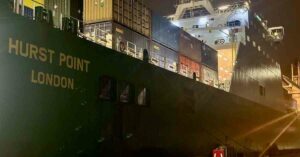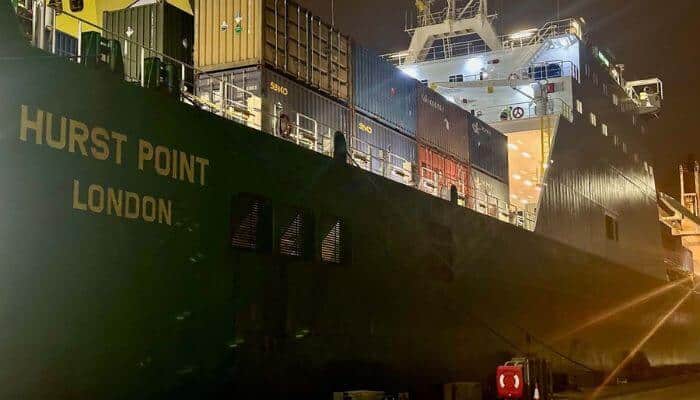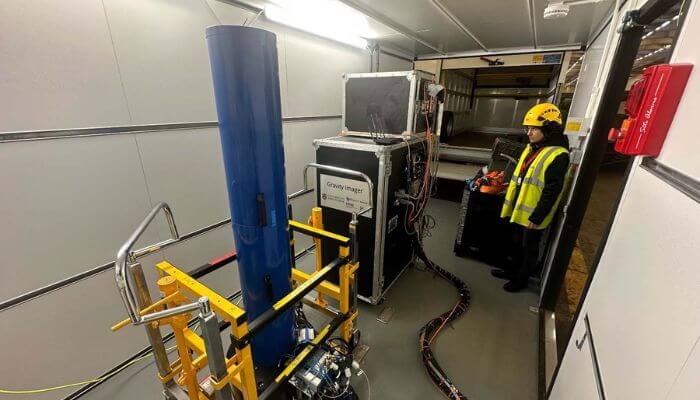
Iran Releases Filipino Crew Member From Seized Oil Tanker, ST Nikolas
February 21, 2024
Houthis Claim Missile Attack On Israeli Cargo Ship In Gulf Of Aden
February 21, 2024
The Royal Navy has worked with scientists to progress on the next set of quantum technology experiments. The Office for the Chief Technology Officer (abbreviated the OCTO) supported specialists from the University of Birmingham and the Dstl to conduct quantum experiments that may pave the way for advanced positioning and navigation tools while at sea.
In the most recent round of testing, the tech was taken to sea on the MOD cargo vessel the Hurst Point to perceive how the system would work in a real-life setup and to enhance the efficiency and effectiveness of the atomic performance. Proven to operate on a vessel alongside, quantum navigation has the power in the future to offer GPS-free navigation, making it considerably less prone to imitation, jamming, or other sabotage.

A new accelerometer measures how the object’s speed alters with time. The current location can be easily calculated by combining the information with the rotation measurements and the initial object position. It uses ultracold atoms to make accurate measurements, which, when cooled to very low temperatures, the atoms start reflecting wave-like properties. As the atoms move via the sensor, an optical ruler gets formed by laser pulses. This permits the acceleration of particles to be measured precisely.
By taking the technology to sea, the University of Birmingham, OCTO, and the Dstl could evaluate the impacts of a vessel’s vibration, motion, and acceleration that will lay the further foundations for quantum mechanics as the navigation systems. Chester Butterworth, the Deputy Chief Technology Officer and the MOD Project Lead, said that the convergence of traditional sciences with quantum phenomena would significantly disrupt conventional technology across operational capability areas, bringing about evolutionary and revolutionary changes.

Quantum technologies possess the potential to solve a few of the Defense’s most pressing issues, boost the operational edge, and pave the way to brand-new yet realized opportunities. In the experiment, the specialists are trying to advance novel navigational strategies toward a 100% resilient satellite-free capability. Professor Michael Holynski, the project lead at the University of Birmingham, added that they are very excited to spearhead the project that could essentially pave the way for improved quantum capabilities for the Royal Navy.
Building upon the latest developments in the UK’s National Quantum Technology Programme, including assignments funded by the Dstl, Engineering and Physical Sciences Research Council, and Innovate UK, the next phase of trials is going to offer the team great insights into the real-world future applications while at Sea, and the related challenges this unfolds. The Royal Navy’s CTO, Brig Jamie Roylance, along with his team, seeks to capitalize on the burgeoning strength of the UK’s quantum research for accelerating potential uses while at sea.
Reference: Naval Technology
Royal Navy Works On GPS-Free Technology For Advanced Navigation At Sea appeared first on Marine Insight – The Maritime Industry Guide
Source: Maritime Shipping News


